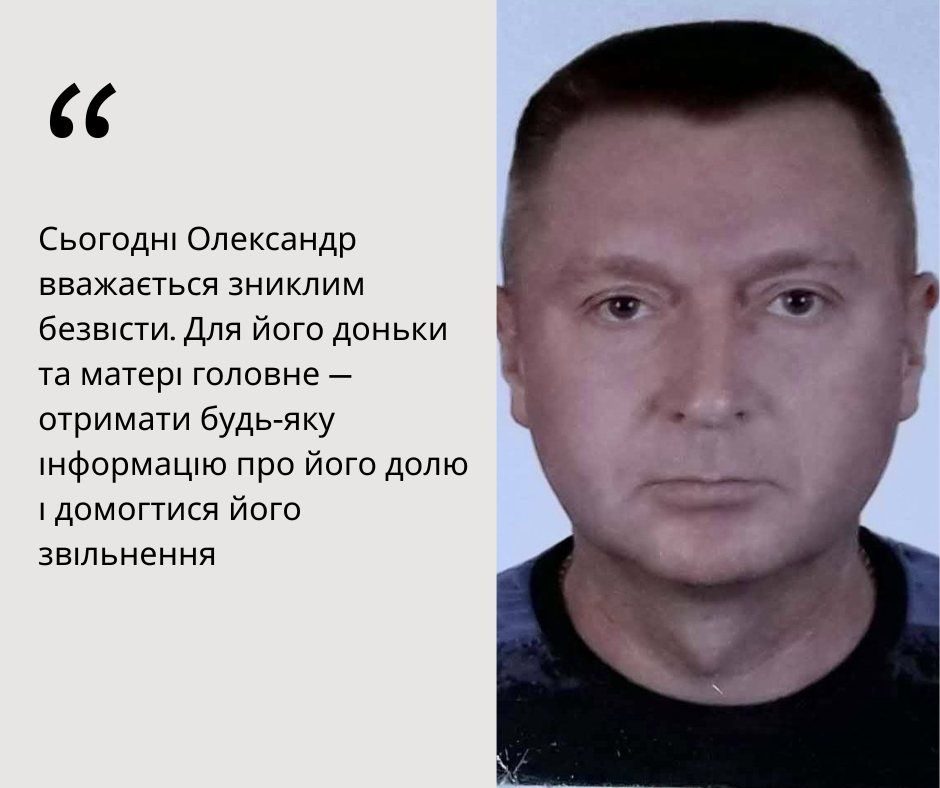

The story of Oleksandr Pavlenko's disappearance from Melitopol
Since June 2022, Svitlana Vorobyova has been searching for her father, Oleksandr Pavlenko, who disappeared after being taken from his home in Melitopol by Russian military personnel.
On the evening of 11 June 2022, three or four armed men wearing masks broke into a private house. They searched all the rooms and the garage, checked documents and asked strange questions: ‘Where is your son? Where is your daughter?’ There was no sign of the car. No warrants were presented, and no reasons for the detention were given. Oleksandr was immediately taken from his home and driven away in an unknown direction.
The first rumours appeared only after a long time: an acquaintance brought a list of possible detainees in the Melitopol pre-trial detention centre, among whom was Oleksandr's name. Later, it was unofficially reported that he might be in the Taganrog pre-trial detention centre, but the family never received any official confirmation.
His relatives knocked on the doors of all the institutions, but all they heard was, ‘We don't have him’ or ‘The case is closed.’ They appealed to the Coordination Headquarters, the police, the NIB, and the Human Rights Ombudsman.
Oleksandr Pavlenko, born in 1971, worked for a furniture company before the war, making custom-made furniture. He did not serve in the Armed Forces of Ukraine or the Anti-Terrorist Operation and had no military experience. His family suspects that the reason for his detention may have been a personal feud with a neighbour.
Today, Oleksandr is considered missing in action. For his daughter and mother, the most important thing is to obtain any information about his fate and secure his release.
The documentation of war crimes is carried out with the financial support of the Norwegian Helsinki Committee (NHC). The views and conclusions expressed in this publication are solely those of the authors and do not necessarily reflect the position or policy of the NHC.
Photo provided by Svitlana Vorobyova.
The association systematically documents Russian war crimes, works to secure the release of civilians and supports their families.